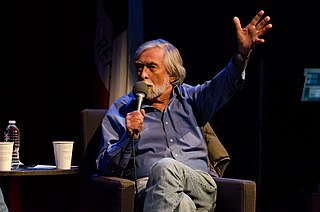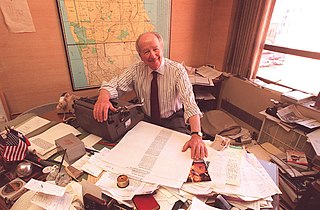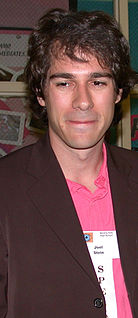A Quote by Robert Scheer
It had run as a column - I had worked at the paper since 1976, but the column had been running for 13 years, and I think it was a strong column, criticizing the war when the paper was supporting it.
Related Quotes
I had written a lot about my dog dying before. I wrote a newspaper column about it and it turned out to be the most popular column I'd ever written. That and the lame Joni Mitchell column I did. But the dog column, my god! People love dogs. Anybody who writes regularly should know, when in doubt: dogs! If you're a columnist, when in doubt, write a column about the culture of narcissism - like a scolding column about the culture of narcissism - or write something about dogs. That's the homerun in my take.
I got a letter one day from somebody saying, `You're always criticizing the press. Why don't you talk about what Clay Felker is doing to your own paper [The Voice]?' And my 10-year-old son Tom, now with Williams & Connelly, put in a legal opinion, not - an opinion from the back of the car saying, `You know why? What are you, afraid?' So I wrote the column. I - you know, - the column simply said that Felker is destroying this paper.
I was very pleased to get a Supreme Court justice suggesting a column, so I went and did a column about Beano. I went with my wife and another guy to a Mexican restaurant, which we thought would be the ultimate test for an antiflatulance product. There's a reason most of Mexico is located out of doors. And it worked. Several newspapers refused to run that column. But they did run advertisements for Beano.
When I turned 45, I lay in bed reflecting on all life had taught me. My soul sprang a leak and ideas flowed out. My pen simply caught them and set the words on paper. I typed them up and turned them into a newspaper column of the 45 lessons life taught me. When I hit 50, I added five more lessons and the paper ran the column again.
I felt ugly, chubby, and stupid until I talked to my mom about it and she had me do a very good exercise that I recommend to every girl. She had me take a piece of paper and write down everything I liked and everything that I didn't like about my body and my life. By the end of the exercise, I realized that I had so many more things in my likes column. It showed me that while there are a few things in my dislikes column, I was giving ALL my attention to those few things!
Greek architecture taught me that the column is where the light is not, and the space between is where the light is. It is a matter of no-light, light, no-light, light. A column and a column brings light between them. To make a column which grows out of the wall and which makes its own rhythm of no-light, light, no-light, light: that is the marvel of the artist.






























